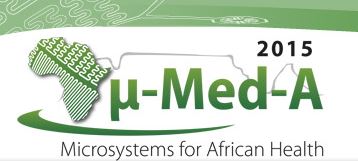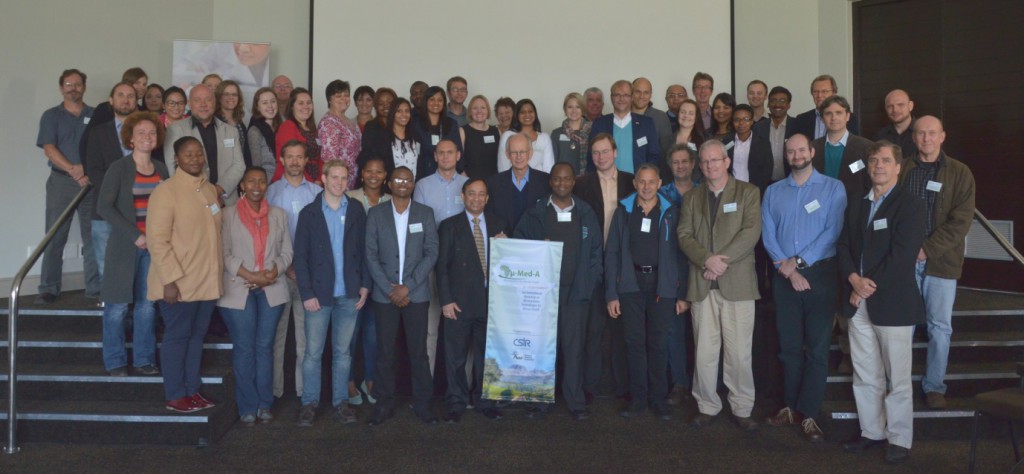The third international Micro-Med-A workshop took place in Stellenbosch, South Africa, from 16-19 September 2015. The workshop provided the perfect platform to bring together leaders in the field of microsystems technologies as well as industry partners and medical experts to discuss new ideas and strategies to develop cutting edge point-of-care (PoC) diagnostics to address solutions for real world problems by building a collaborative network across various disciplines and by crossing geographical borders.
The theme for the workshop was the development of rapid point-of-care technologies for various applications relating to health and the environment.
The workshop opened with a proposal put forth by the chairmen, Kevin Land from the Council for Scientific and Industrial Research (CSIR) in South Africa and Jan Korvink from Karlsruhe Institute of Technology (KIT) in Germany. It was suggested that the outcome of the meeting should be the collaborative effort of experts in various fields working on a single extreme PoC project with combined expertise and combined resources, where each group would focus on an aspect of the bigger project with the common goal of addressing one defined problem.
The conference started with presentations from clinicians and pathologists whose daily work involves diagnostic testing and interactions with patients for whom rapid PoC tests would ultimately be aimed. Point of care is defined as a low cost, rapid diagnostic test or service that can be completed at the point of testing, independent of a centralised high infrastructure laboratory. In 2014 the recorded population of South Africans living in rural settings was 35.7%. Such settings do not have the infrastructure for high-tech laboratory and medical care facilities. In many instances visiting a clinic for medical attention comes at a cost of a day’s wage while also incurring travelling expenses. Furthermore, many people do not make the required follow up visits to receive results or treatment. Therefore PoC tests are well suited to the African landscape where clinics and medical facilities are far from rural communities.
The event presented work by industry partners and representatives from commercial companies which provided a fresh outlook on collaborative networks. This bridged the gap between academics and industry where the latter can serve to provide well established platforms that can be integrated into developed or developing technology without re-inventing the wheel. This provides a twofold advantage, mainly reduction to development costs and time to market.
Paper based microfluidic devices or µPADs are an attractive platform for diagnostic tests. Paper is cheap, easily accessible and easily printed on; it can be burnt and therefore there is no need for costly biohazard waste disposable facilities. Paper is easily stacked making it easy to transport and therefore deliverable to end users. Furthermore, paper is self-wetting and does not require instrumentation for readout. Therefore, paper based tests are gaining more recognition as the solution to PoC tests as it meets many of the ASSURED criteria for rapid PoC. Needless to say, there are many research groups developing PoC tests using paper substrates and this was showcased at the workshop. Some of the technologies presented at the Micro-Med-A workshop showed paper based PoC applications in the developmental stage of research for the detection of toxic metals and bacterial detection in the environment. This further emphasised that paper based tests can address an important niche in diagnostics.
The workshop fostered an environment for excitement in the field of microsystems for African health through many interactive discussions and insights from participants of various backgrounds. The workshop enabled new networks to be established, while strengthening existing ones, and mapped the overall bigger picture of what is required to address health issues, particularly in under-resourced settings such as those in rural Africa and India.
The workshop closed with many suggestions from delegates for future meetings with the groundwork being laid for collaborative efforts. Information on this workshop can be found at www.micromed2015.co.za. The next workshop will be held in September 2017. People interested in receiving details once they are available should contact Kevin Land.
Delegates who attended the MicroMed 2015 workshop in South Africa.













